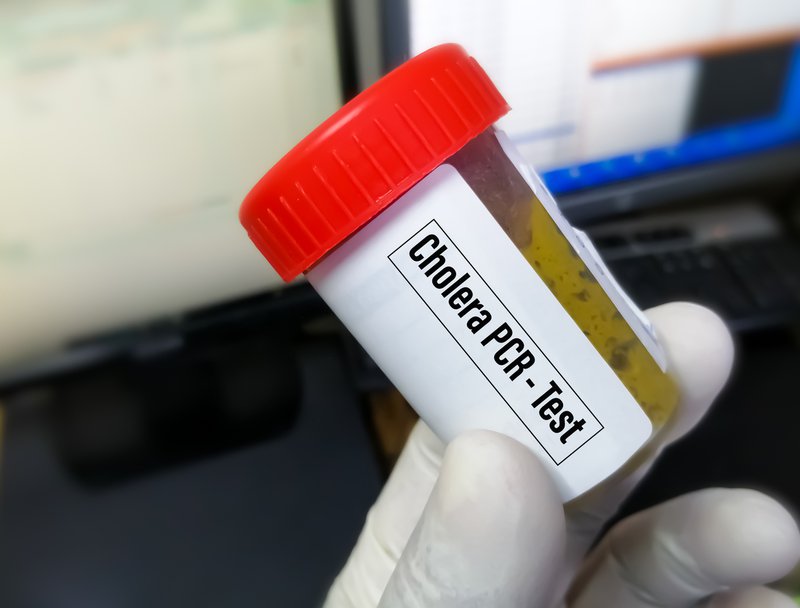Cholera symptoms and treatment
Updated | By Poelano Malema
Don't let cholera take your life. Here is what you need to know about the virus and how you can take better precaution to reduce your chances of contracting it.

Each year, at least 1.3-million to 4-million cases of cholera are reported around the world - with 21,000 to 143,000 deaths worldwide occurring due to the virus.
Currently, South Africa is dealing with a cholera outbreak.
READ: South Africans urged to be vigilant as 'chances of cholera outbreaks high'
The first two cases were reported at the end of January when sisters travelling from Malawi contracted cholera, reports Eye Witness News.
Last week, the Minister of Health, Dr Joe Phaahla, announced the first death linked to the recent cases of cholera detected in South Africa. The patient was 24-years-old and resided in Wattville, Benoni in Ekurhuleni, and had no prior local or international travel history.
What is cholera?
The World Health Organisation defines cholera as an acute diarrhoeal infection caused by ingestion of food or water contaminated with the bacterium Vibrio cholerae.
The South African government reports that people can become infected directly through drinking contaminated water or indirectly through eating contaminated food.
READ: First confirmed cholera death in South Africa
Symptoms
It is important to know the symptoms so that you can get treatment as soon as possible. According to WHO, cholera can kill within hours if left untreated.
But it is not always visible to see the symptoms, because most people infected with V. cholerae do not develop any symptoms. CDC reports that 'most persons infected with the cholera bacterium have mild diarrhea or no symptoms at all'.
The most common symptoms are diarrhoea, dehydration, vomiting, and body weakness.
All people who experience cholera-like symptoms, with or without local or international travel history, are encouraged immediately visit their nearest health facility for screening and testing to ensure early detection and successful treatment, if test positive.- South African Government
Prevention
- Only drink and use safe water for cooking. If you are not sure the water is safe, boil it first. This includes water you use for brushing your teeth or preparing food.
- Wash your hands with clean water and soap before, during, and after preparing food, after using the restroom, cleaning a child's bottom, and after caring for someone who is sick.
- Centers for Controlled Disease Control and Prevention (CDC) states that people should use toilets or safely managed sanitation facilities to get rid of feces (poop).
- The health website also advises taking precaution to guarantee that food is properly cooked and prepared and it adds that people should avoid raw vegetables and fruits that cannot be peeled.
'Cook food well, keep it covered, eat it hot, and peel fruits and vegetables. Eat foods that have been thoroughly cooked and are still hot and steaming. Be sure to cook seafood, especially shellfish, until it is very hot all the way through,' states CDC.
- Clean surfaces thoroughly.
'Clean food preparation areas and kitchenware with soap and treated water and let dry completely before reuse.
'Bathe and wash clothes or diapers 30 meters (100 feet) away from drinking water sources.
'Clean and disinfect toilets and surfaces contaminated with poop: clean the surface with a soap solution to remove solids; then disinfect using a solution of 1 part household bleach to 9 parts water.
'When finished cleaning, safely dispose of soapy water and dirty rags. Wash hands again with soap and safe water after cleaning and disinfecting,' states CDC.
READ: Probe continues into cause of north KZN diarrhoea outbreak
Treatment
The following treatments are stated on CDC's website:
Rehydration therapy is the primary treatment for cholera patients. It deals with the restoration of lost fluids and salts.
Antibiotic treatment reduces fluids requirements and duration of illness, and zinc treatment improves cholera symptoms in children.
The South African government advices that 'all people who experience cholera-like symptoms, with or without local or international travel history, are encouraged immediately visit their nearest health facility for screening and testing to ensure early detection and successful treatment, if test positive.'
More From East Coast Radio
Image courtesy of iStock/ @Md Saiful Islam Khan
More From East Coast Radio
Show's Stories
-
Here's how microplastics affect your looks
Did you know that microplastics are affecting your health and appearance...
Stacey & J Sbu 1 day, 12 hours ago -
Darren Maule visits the KZN Integrated Youth Camp
From promise to purpose! Darren Maule visited a youth leadership camp in...
East Coast Breakfast 1 day, 14 hours ago